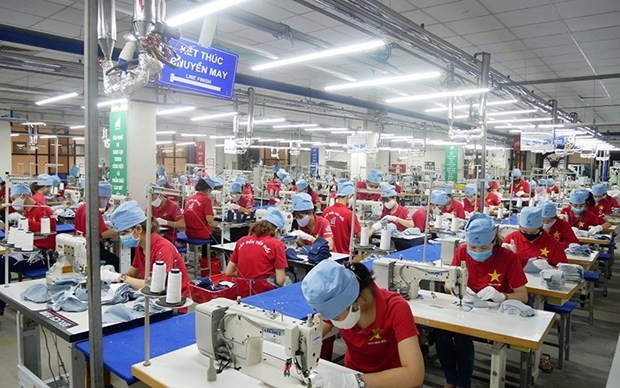Oatly, Morrisons, Facebook: Everything that matters this morning
Good morning and welcome to Marketing Week’s round-up of the news that matters in the marketing world today.
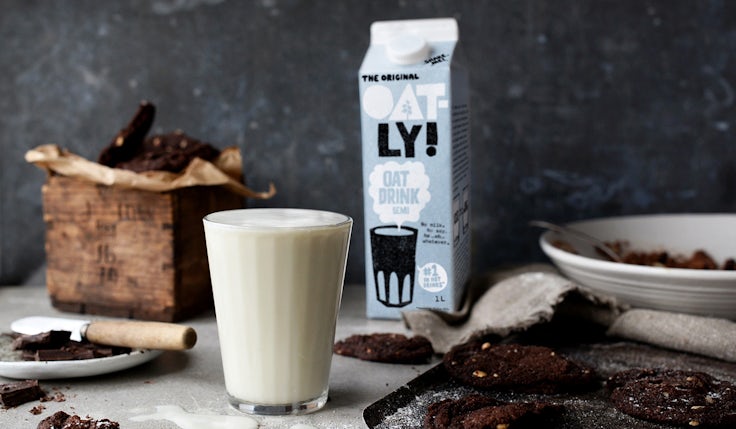
Oatly hails successful IPO and 53.3% surge in revenue
Swedish plant-based milk brand Oatly has reported a 53.3% surge in revenue for the three months to 30 June, the first results it has reported since the “successful completion” of its IPO in May. The brand is now pushing on with plans to expand capacity and footprint.
Oatly’s revenues hit $146.2m (£105m) during the second quarter, up from $95.3m (£68.8m) in the same quarter a year ago, although the pandemic has impacted sales by $12m to $14m, the company predicts. Meanwhile, gross profit is up to $38.6m from $30.8m in the same period last year.
Marketing spend has increased during the quarter to $5.3m after the brand pulled back on advertising due to the pandemic. On research and development, the brand has increased investment to $4m from $1.3m for new innovations.
Looking ahead, Oatly is forecasting full-year 2021 revenue to surpass $690m (£497.6m).
The company went public on 24 May to fund global expansion plans. Shares were sold at $17 per share, raising the company $1.03bn.
Oatly chief executive Toni Petersson says the IPO provided the company with enough funds to operate on three continents, and doubled its production capacity in Vlissingen, Netherlands.
It plans to use the cash raised to “fund incremental growth” including capacity expansion which entails the opening of a third US-based manufacturing site to be open in 2023 in Fort Worth, Texas and has opened a facility in Singapore this year.
Oatly has partnered with brands globally to expand distribution. In China it partnered with McDonald’s, KFC, Walmart and convenience store chain 7-Eleven. The brand also began selling in Switzerland and Ireland.
Petersson says: “We’re continually expanding global production capacity to support our long-term growth and launching key partnerships and distribution agreements with prominent customers globally.
“We’re excited about the addition of our second manufacturing facility in Asia, which remains on track to open in the second half of 2021, providing a second new source of local production to the region.
“Our new and existing production capacity gives us confidence in our ability to achieve an accelerated revenue growth rate in the second half of this year, while also extending our core values and mission for a more sustainable food system.”
Morrisons bidder pledges to hold off on property sale

US company Clayton, Dubilier & Rice (CD&R) is expected to promise not to sell parts of Morrisons’ property portfolio when it launches an improved bid for the supermarket brand.
Morrisons owns 86% of its stores outright and is the UK’s fourth-largest grocer, while rivals Tesco and Sainsbury’s own just over 50% of theirs.
Currently, Morrisons’ board is pushing for shareholders to accept a bid from rival bidders, a consortium led by US-based and Japanese-owned Fortress Group.
CD&R’s statement seems to move in response to speculation on the Fortress Group’s plan involving property sales, as the latter includes the real estate arm of the biggest private company in the US, Koch Industries.
However, in its offer Fortress has stated it “does not anticipate engaging in any material store sale and leaseback transactions”.
The BBC says a person close to the deal has said CD&R will make “similar commitments” when it tables an improved bid of £6.7bn before a deadline this Friday.
READ MORE: Morrisons bid rival to make pledge on property sale
Grocery shopping habits edge closer to pre-pandemic levels
British consumers have been steadily returning to pre-pandemic shopping habits with punters now making more trips to stores, as restrictions are relaxed.
Data from Kantar shows grocery sales fell 4% in the 12 weeks to 8 August compared to the same period last year, and in the last four weeks sales have declined more slowly by 0.5% as consumers made an additional 108,000 trips to store.
However, Covid-19 is still having an impact on people’s spending as grocery sales remain 9.9% higher in the latest 12 weeks than in 2019.
Over 20% of households bought groceries online in the latest 12 weeks, its lowest level since October last year. But consumers who discovered the convenience of online ordering seem to be “sticking with it”, by ordering more regularly and spending on average more than two-thirds of their grocery budget online.
But those unsure about online ordering have moved back to stores.
The shift away from online has contributed to Ocado’s first decline on record with sales falling 0.7%, after “rapid expansion” under lockdown.
However, Kantar states there is “still a positive outlook” for the online specialist which retains 1.8% of total grocery sales compared to last year, and sales are up 44.4% compared to 2019.
In the same period, 87% of all payments made at major grocers were made using card as the pandemic accelerated the shift away from cash.
Tesco will introduce its first till-less store and Amazon has launched its ‘just walk out stores’, with other brands to tipped to follow suit.
Kantar head of retail and consumer insight, Fraser McKevitt, says: “With the end of social distancing restrictions people have been happier to head into stores to make more regular, smaller shops. Consumers made an extra 108,000 shopping trips this month, while average basket sizes were 10% smaller.”
Facebook bans content from the Taliban
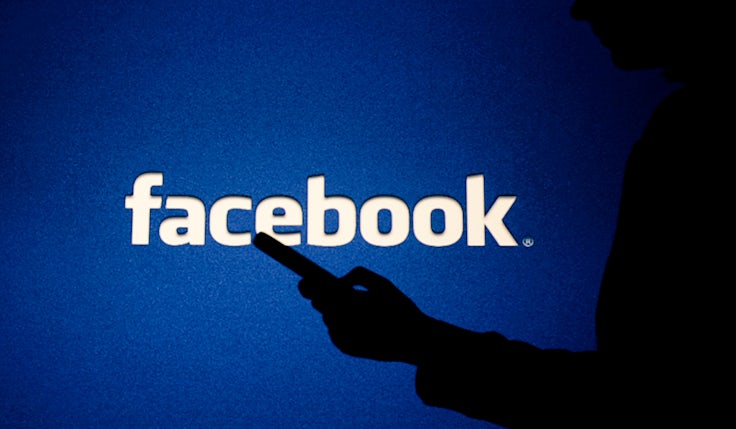
Facebook has stated it will ban all content from the Taliban across its platforms after deeming it a terrorist organisation, as the group takes over key territories in Afghanistan.
The Taliban has for years used social media to spread its messages, Facebook is dedicating a team of Afghan experts to monitor and remove content linked with the group on Facebook, Instagram and WhatsApp.
Facebook has said it follows the “authority of the international community” and it does not decide the recognition of national governments.
A Facebook spokesperson has told the BBC: “The Taliban is sanctioned as a terrorist organisation under US law and we have banned them from our services under our dangerous organisation policies. This means we remove accounts maintained by or on behalf of the Taliban and prohibit praise, support, and representation of them,”
“We also have a dedicated team of Afghanistan experts, who are native Dari and Pashto speakers and have knowledge of local context, helping to identify and alert us to emerging issues on the platform,” they added.
Rival platforms Twitter and YouTube have also been scrutinised for how they regulate content from the group, as Taliban leaders have used Twitter to inform followers it has regained control of Afghanistan.
Twitter points to its rules, stating it does not allow groups that promote terrorism or violence against civilians.
US probes Tesla Autopilot feature
A US federal agency has opened an investigation into the electric car marker following 11 crashes since 2018 with emergency vehicles.
The National Highway Traffic Safety Administration (NHTSA) says its investigation will span around 765,000 Tesla cars manufactured since 2014.
This includes the Tesla’s entire current range the Model Y, Model X, Model S and Model 3
The NHTSA says some Tesla vehicles “crashed directly into the vehicles of first responders”.
It is concerned with how Tesla vehicles seemingly have the inability to register stationary vehicles on the road, especially with emergency vehicles at an incident.
In its preliminary investigation, the agency will check “the technologies and methods used to monitor, assist, and enforce the driver’s engagement”, while using Autopilot.
In the 11 crashes, Autopilot or a system called Traffic Aware Cruise Control had been active “just prior” to the collisions, says the NHTSA.
Autopilot allows the car to steer, accelerate and brake automatically. But it has come under fire for being misleading as it requires a driver’s full attention at all times.
Tesla pledges to launch a “full-self-driving” version of its technology which is currently in beta.
An NHTSA spokesperson says: “No commercially available motor vehicles today are capable of driving themselves. Every available vehicle requires a human driver to be in control at all times.”
Although the agency notes the crashes occurred under challenging conditions.
“Most incidents took place after dark and the crash scenes encountered included scene control measures such as first responder vehicle lights, flares, an illuminated arrow board, and road cones.”
Monday, 16 August
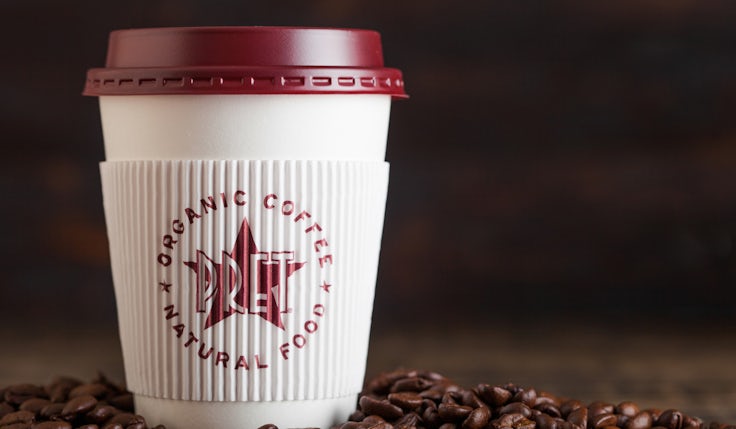
Pret A Manger looks outside London in expansion plans
Pret A Manger is reportedly making plans to open 100 new franchised shops across the UK in a push to expand further beyond the capital.
The new stores will focus on areas outside of London, including in drive-thru shops and on high streets. The move could create up to 2,000 new jobs.
The business is also planning to open 100 new company-owned outlets in the next three years, the Sunday Times reports.
Pret A Manger was hit hard by the pandemic, as lockdowns and working from home kept customers out of London where most of its shops are concentrated.
Sales were down by 80% at the lowest point, and last summer the business made 3,000 job cuts – almost a third of its workforce. Its store estate has also fallen from 413 in 2019 to 390.
Earlier this month the business was forced to make a U-turn on plans to axe staff bonuses after employees threatened to strike, though temporary pandemic pay cuts are to remain permanent.
Rail industry unveils biggest consumer rail campaign since Covid
The rail industry has launched a new campaign designed to encourage people back onto the railway as pandemic restrictions ease.
‘Let’s get back on track’, the industry’s biggest campaign since Covid-19 began, highlights the role rail plays in connecting people by focusing on the different journeys people take on the train every day.
The campaign launches today and will run across TV and on-demand until the beginning of September, alongside radio, outdoor advertising and digital activity until the end of October. Train companies will also utilise their owned marketing channels, such as at stations.
According to the Rail Delivery Group’s marketing strategy director Merel van den Boomen, the aim is to drive consideration of train travel as a mode of transport.
“Rail is fundamental to helping people reconnect while also at the centre of the country’s economic recovery from the pandemic, which is why the industry has come together to develop a national, emotionally-engaging campaign to drive consideration of train travel and re-connect the UK,” she says.
The campaign was devised by creative agency Accomplice, while media was planned by Spark Foundry.
Virgin Money celebrates return of live music with rooftop gigs
Virgin Money has unveiled a series of live gigs to celebrate the return of live music, which has been banned under Covid restrictions for the past 18 months.
Virgin Money customers have access to the gigs as part of a developing customer rewards programme, while tickets are also on general sale.
Taking place on the roof of The O2, ‘Up at The O2’ will feature up and coming artists from Virgin Money’s ‘Emerging Stars’ programme, which is designed to identify, support and promote emerging musical talent in the UK. Launched in the summer of 2020, each of the six artists on the programme has so far received a £10,000 development fund and has access to financial mentoring from Virgin Money.
The first three Emerging Stars to be featured in the gigs include Dylan, Aaron Taylor and Mosa Wild.
“Creativity and innovation is at the core of the Virgin Money brand and we are excited to mark the return of live music events in 2021 in a truly spectacular way,” says chief brand officer Helen Page.
“We can’t wait to create unforgettable moments for Virgin Money customers while supporting the UK’s music industry as it makes its return to live events. Rewarding our customers is a huge priority for us – access to exclusive events, such as these, is a brilliant perk for customers and there’s plenty more to come.”
Beavertown Brewery launches first pub
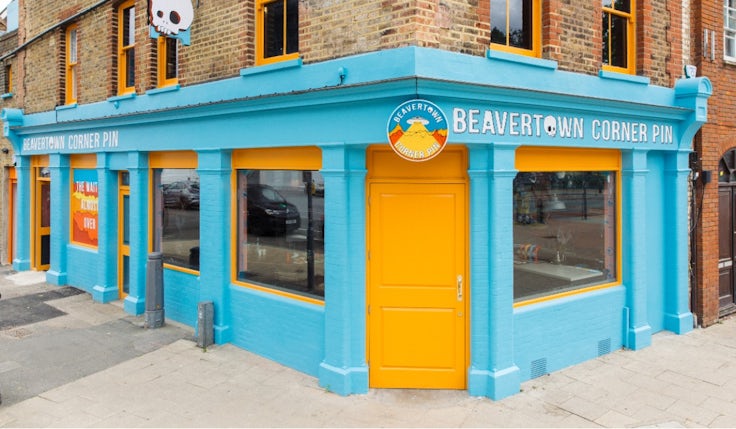
Craft beer brewer Beavertown Brewery has launched its first pub in the brand’s home town of Tottenham.
The ‘Corner Pin’ pub is located opposite The Tottenham Hotspur stadium, and is being restored in collaboration with the football team. Beavertown already has a longstanding partnership with the squad.
The design of the venue takes inspiration from Beavertown’s colourful and cartoonish cans, and is described as “the full Beavertown experience”.
The pub, the company’s first in its nine-year history, will serve both food and its own range of drinks.
“We can’t wait to open the doors to this historic venue and breathe new life into the much-loved pub, the only way we know how…with epic design, cracking beer and a great atmosphere,” says founder Logan Plant.
Rival craft beer company BrewDog, which has been in business since 2007, launched its first bar in Aberdeen in 2009. By the end of 2018, the company and franchisees operated 78 bars worldwide.
Life insurance provider encourages customers to ‘Please Die Responsibly’
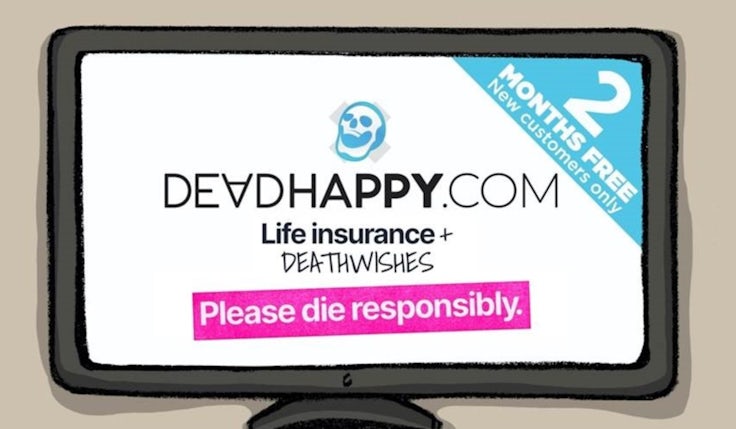
DeadHappy has launched a new brand advertising campaign to promote its ‘Deathwishes’ service.
The brand claims to be able to weave a Deathwish into any life insurance policy, such as sending somebody’s ashes to space or giving someone a tattoo.
The TV ad launches today (16 August) across channels including Channel 4 and Sky, while a second version will debut on 1 September.
The first ad takes a straight-talking approach, showing examples of Deathwishes on-screen. One asks for a “Viking funeral with a truck load of fireworks”, for example.
The second spot features the brand’s two cartoon personalities, ‘Mick’ and ‘Tel’. The full campaign will also run across social channels and is supported by a PR campaign.
“We’ve seen incredible growth over the past year, driven by consumers getting fed up with the long-winded and laborious way the life insurance sector works and seeking out easier, hassle-free ways of doing it,” says DeadHappy’s head of brand, Ed Edwards.
“The one certainty in life is that we’re all going to die. We know that asking people to ‘please die responsibly’ may shock or surprise some consumers, but it really is time life insurance is pushed front of mind.
“This campaign is about encouraging all of us to genuinely think about what we’d like to happen when we die; whether that’s giving loved ones a trip of a lifetime, leaving one final jab of banter at our pals or ensuring your partner and children have a roof firmly over their heads.”



 Print the article
Print the article